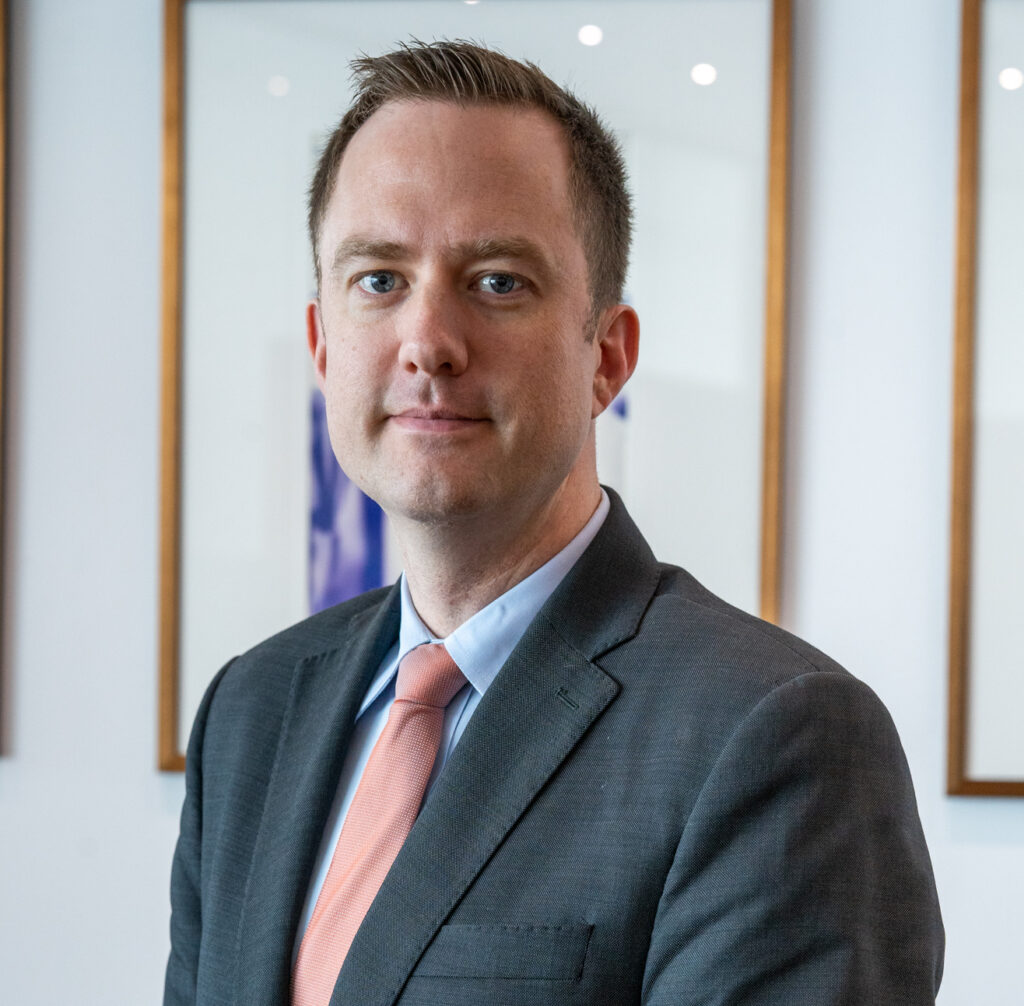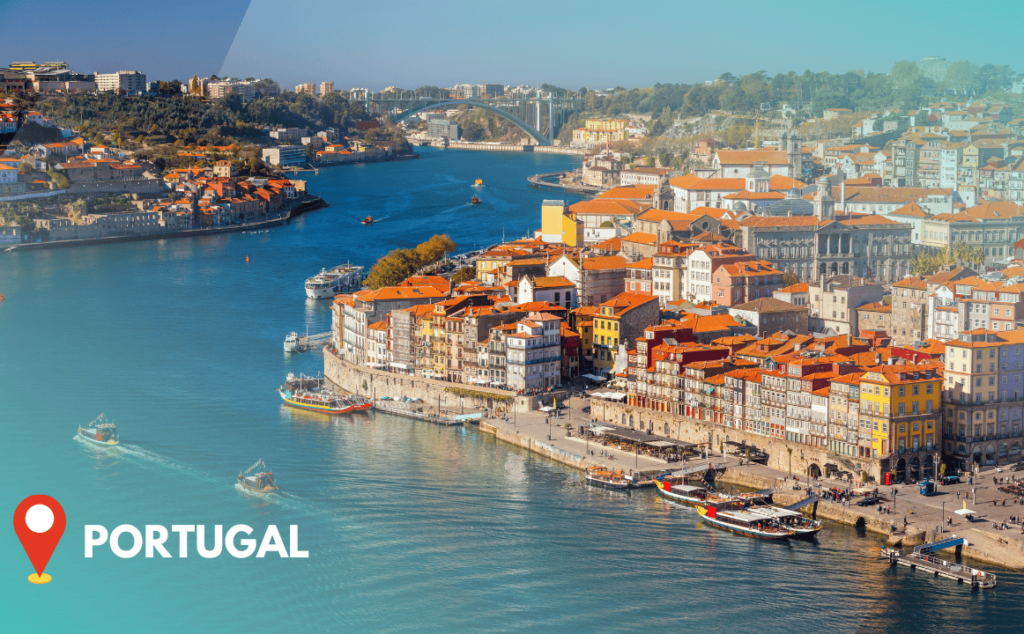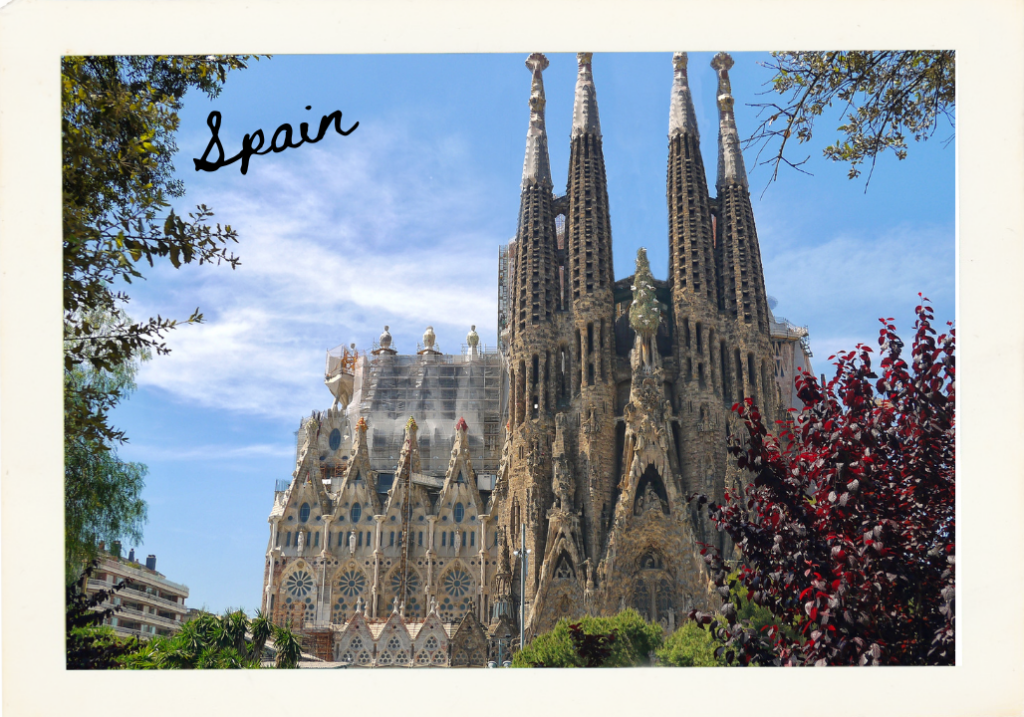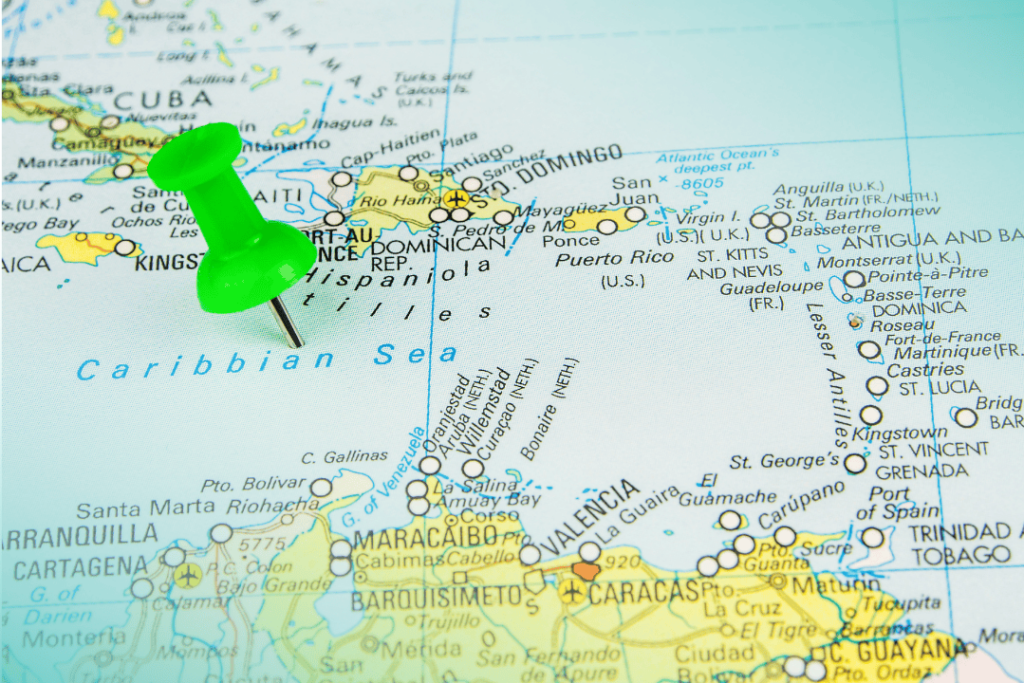How to Obtain a Second Passport or Residence Permit Abroad
- Why do some Americans want to get a second passport?
- What are popular paths to residency in Europe for Americans?
- What are other regions of the world where Americans seek passports?
- How can you immigrate to Canada?
- Can you really obtain Italian citizenship from your great-grandparents?
- What is the future like for these citizenship and residency programs?
Excerpt from the Podcast:
Jenni: Welcome to the Modern Family Finance podcast where we talk about all things money, career, and life. I’m Jenni and a San Francisco Bay Area financial planner serving women and LGBTQ professionals.
 Having lived abroad myself in Europe and Asia, I love the idea of going international to live your ideal life. In addition to the adventure, it can also be a great way to get to financial independence faster. I talk to a lot of clients who are interested in living abroad, but don’t know how you can actually get residency or citizenship in another country.
Having lived abroad myself in Europe and Asia, I love the idea of going international to live your ideal life. In addition to the adventure, it can also be a great way to get to financial independence faster. I talk to a lot of clients who are interested in living abroad, but don’t know how you can actually get residency or citizenship in another country.
That is why I reached out to Jon Green, director at Latitude Consultancy. They operate in 20 countries worldwide and have helped over 6,000 clients obtain a second passport or residence permit. Thanks for being here, Jon.
Jon: Thanks for having me, Jenni. It’s a pleasure.
Jenni: Please tell me more about Latitude.
Jon: Excellent. So my name, again, Jon Green with Latitude Consultancy. I’m one of the co founders of the company. We started just about six and a half years ago, and we specialize in citizenship and residency by investment planning. So we’re assisting clients with these type of programs from all over the world.
Jon: And we have a global presence. I myself am based in our Vancouver office and predominantly assist our North American clients with obtaining a second citizenship or a residency permit from around the world.
Why do some Americans get a second passport?(01:46)

Jenni: What kind of folks are engaging with your services?
Jon: We get a wide range of clients. American clients are seeking more options in life and not to be necessarily tied to one country. They want the freedom to be able to reside in another country, or just have that option down the road should the need ever arise.
This is where we come in. There are a lot of misconceptions within this industry on certain programs and what the qualifying factors are. So we can come in and sit down with the client and review their options and help steer them in the right direction to the program that’s going to best fit their needs.
What are popular residency programs in Europe for Americans?(02:52)
 Jon: I’d say the most popular program for our American clients right now is probably the Portugal Golden Visa. It’s a program that’s been around since 2012 and the government of Portugal created it to help the country come out of the debt crisis from 2008, 2009. It’s really had a positive effect on the country as billions of dollars have been poured in through foreign direct investment as foreigners from all over the world, not just Americans, are looking at Portugal as a viable option for a residency permit. And what’s made it so popular is that it’s a flexible program.
Jon: I’d say the most popular program for our American clients right now is probably the Portugal Golden Visa. It’s a program that’s been around since 2012 and the government of Portugal created it to help the country come out of the debt crisis from 2008, 2009. It’s really had a positive effect on the country as billions of dollars have been poured in through foreign direct investment as foreigners from all over the world, not just Americans, are looking at Portugal as a viable option for a residency permit. And what’s made it so popular is that it’s a flexible program.
Clients only need to spend seven days per year in the country to maintain the residency status, and that’s even enough to qualify for citizenship after five years. For a lot of clients with kids still in school or who maybe aren’t quite ready to make the move to Europe but want to start working towards citizenship, Portugal has been a very popular program. They’re interested in the longterm ultimate goal of EU citizenship.
Jenni: So I heard though that that program has ended. Is that the case? How can people get to Portugal now?
Jon: Every couple of years Portugal tweaks their program. When it was first launched in 2012, the two main options were a bank deposit and a real estate investment. Throughout the years, they’ve tweaked it in terms of the minimum costs to help encourage investment in more rural areas of the country.
In about October of last year they decided to remove real estate as a qualifying investment. And that’s really because some of the concerns the local population had was real estate prices were becoming too high for the local population to afford.
However, they still have a number of options to qualify, and right now the most popular is the Venture Capital fund, which is an investment from 500,000 Euros into a fund, which in turn is investing into Portugal. That will qualify you for the golden visa.
Jenni: : What are other European programs that Americans are going after?
Jon: The Malta Citizenship by Investment Program is popular, but not as attainable to many because of the cost over around $950,000 Euros. This is Europe’s only Citizenship by Investment Program where clients contribute to the country and subject to strict due diligence checks are granted citizenship. This is a more costly program because the path to citizenship is about 18 months. Once they’re a citizen of Malta, they have the right as an EU citizen to live and work anywhere in Europe.

The fee is a combination of a government contribution as well as due diligence and some processing fees, in addition to the leasing of a property. For each additional dependent, such as a spouse or a child, can be added for a cost around 60,000 euros each. It’s not for everybody, but for those who have the financial means , it really is the ultimate solution for citizenship.
The other European options that are popular are in Greece and Spain. Greece has a residence by investment in real estate with a 400,000 Euro minimum. That’s a very popular program those who want to invest in real estate. However, it is very hard to graduate to citizenship. They require you to live in Greece for at least six months out of the year for seven straight years and then have an intermediate knowledge of the Greek language, which may be harder for some than others.
Jon: The other program that’s been quite popular is the Spain Golden Visa, and it involves the purchase of real estate with a minimum value of 500,000 euros. It’s a 10 year journey with the first 5 years being flexible in terms of residency. From year 6 to 10, you have to spend a lot more time in Spain, unless you’re from a former Spanish colony, then it shrinks from 10 years down to 2 years. That’s a quite a big difference if you’re lucky enough to hold a citizenship of a former Spanish colony which includes pretty much all of South America, as well as the Philippines. And just like Greece, there is a language requirement for Spain.
What are the other regions of the world where Americans seek passports?(16:44)
 Jon: The Caribbean programs which are offered by Antigua, Dominica, Grenada, St. Kitts and Nevis, and St. Lucia are popular with Americans. So these five Caribbean countries all offer a citizenship program where you can either qualify via a contribution or an investment in real estate. For clients who are looking for a second passport right away, these are really good options. They get that second passport within six to 12 months.
Jon: The Caribbean programs which are offered by Antigua, Dominica, Grenada, St. Kitts and Nevis, and St. Lucia are popular with Americans. So these five Caribbean countries all offer a citizenship program where you can either qualify via a contribution or an investment in real estate. For clients who are looking for a second passport right away, these are really good options. They get that second passport within six to 12 months.
Jon: The governments do their due diligence checks on the individual and all family members. They pay a third company to come up with a 40 or 50 page report on that individual applicant who’s interested in the program. The number one reason to be rejected would be to have a criminal record. But the Caribbean has been very popular because the price point is a bit more, more attainable than the EU programs. They start around $200,000 USD vary depending on the family size. But these programs let you include children as well as adult children sometimes up to the age of 30, as long as they’re still financially dependent on the parents. The main applicant can also include his parents if they’re financially dependent and in some cases like Antigua, you can even include unmarried siblings within your application.
How can you immigrate to Canada?(21:16)
 Jon: There is an ongoing joke whenever approaching the US election, the Canadian Immigration Department’s website sees a spike of inquiries from the United States. Canada right now is seeing record levels of immigration.
Jon: There is an ongoing joke whenever approaching the US election, the Canadian Immigration Department’s website sees a spike of inquiries from the United States. Canada right now is seeing record levels of immigration.
Jon: There is an expressed entry process for highly educated skilled workers between the ages of around 24 to 35 with excellent language skills. But for a lot of our clients, they’re outside that age bracket.
What’s a popular program right now is the Canada Startup Visa. This is where you’re investing into a Canadian startup and becoming a 10% owner. Then you can be granted permanent residency and the success or failure of the business has no outcome on your visa status.
We help match Canadian founders with prospective investors and co-founders to make it a smooth process in these preliminary stages.
To maintain your visa in Canada you would need to spend 40% of your time over a five year period in Canada. If citizenship is your goal then 60 percent of your time needs to be spent in Canada over a five year period. So it’s more of a commitment. It’s a bit different of a program that in order to maintain it they want you to live there full time.
Can you really obtain Italian citizenship from your great grandparents?(26:15)
Jenni: What are there are also citizenship by descent programs? My wife is trying to investigate whether her Italian grandmother can help her get citizenship in Italy.
 Jon: There are literally millions of Americans right now who have the ability to acquire EU citizenship through their lineage. Whenever I talk to a client, I always ask if they have any heritage in Europe? Italy happens to be one of the most flexible programs.
Jon: There are literally millions of Americans right now who have the ability to acquire EU citizenship through their lineage. Whenever I talk to a client, I always ask if they have any heritage in Europe? Italy happens to be one of the most flexible programs.
The key for Italy is when that last Italian relative left Italy if they became an American before their children were born? In general, if they became an American and then had their children, the chain is broken. But if they are not yet American, and they subsequently have children, then their children are technically Italian.
So what we do is we’re just getting the Italian government to recognize that they are in fact Italian citizens. We can also assist clients with going to court in Italy and having a judge recognize that in fact, they are Italian citizens. Sometimes you can help large families of 40 or 50 people because they have aunts and uncles who all come from the same grandparent who have children as well as grandkids.
Jenni: That’s amazing. How many generations back can it be that that last relative came from Italy?
Jon: There’s really no there’s really no restriction on how far it goes back. It’s more about the time of when they left Italy. For example for Poland, your last relative must have left after 1920 because Poland didn’t become a country until 1918. For Italy, that ancestor must have been alive after March 17th, 1861. So again, it’s quite generous for Italy. What’s intriguing about Italy is they have a lot of loopholes as well. So even though someone may have been told they don’t qualify. Again, we review it and find out that they do, in fact, through this certain loophole which is what my team does.
Jenni: Gotcha, that’s amazing. How long does that process take and how much does it cost?
Jon: The cost very much varies on how far it goes back and how many family members you include. It can be a 2-3 year process and starts around $10,000. For any clients who are lucky enough to have that lineage, I always recommend it.
What is the future like for these residency and citizenship programs?(33:58)
Jenni: How has the desire or market for second passports and residencies evolved and kind of what trends do you see in the future?
 Jon: When I started in the industry 15 years ago and would go to conferences setting up a booth, people would give us a blank stare. Why would an American ever need a second citizenship? Is that even legal? Of course it is. Americans can hold multiple citizenships. There’s no there’s no maximum number.
Jon: When I started in the industry 15 years ago and would go to conferences setting up a booth, people would give us a blank stare. Why would an American ever need a second citizenship? Is that even legal? Of course it is. Americans can hold multiple citizenships. There’s no there’s no maximum number.
We’ve really saw an uptick in demand when President Trump got elected. Then we saw a further demand once COVID hit. Americans couldn’t travel anymore on their American passport. China used to always be the number one source market for the Portugal program. But when COVID happened, America became the number one source market.
That demand is still there and it’s increasing. Whether it is COVID or the Supreme Court ruling on abortion, or the next president getting elected, there’s always going to be people unhappy and looking at more options in life, right?
In face we opened another office in Miami because we see the US has become such an important market to the investment migration space and we don’t see that slowing down.
Jon: Programs do come and go. The UK and Ireland had an immigrant investor program, and they both close them down. But other countries such as Hungary are launching one soon. Portugal thought about closing it, but then just tweaked it instead.
Jenni: So if people are interested, how can they find you?
Jon: On latitudeworld.com we have all the information on the Citizenship by Descent, Citizenship by Investment, and the Residence by Investment programs. We’re happy to sit with clients over a Zoom call in person and just go through their options and provide an educational session.
Jenni: Awesome. Well, thank you so much for your time, Jon.
